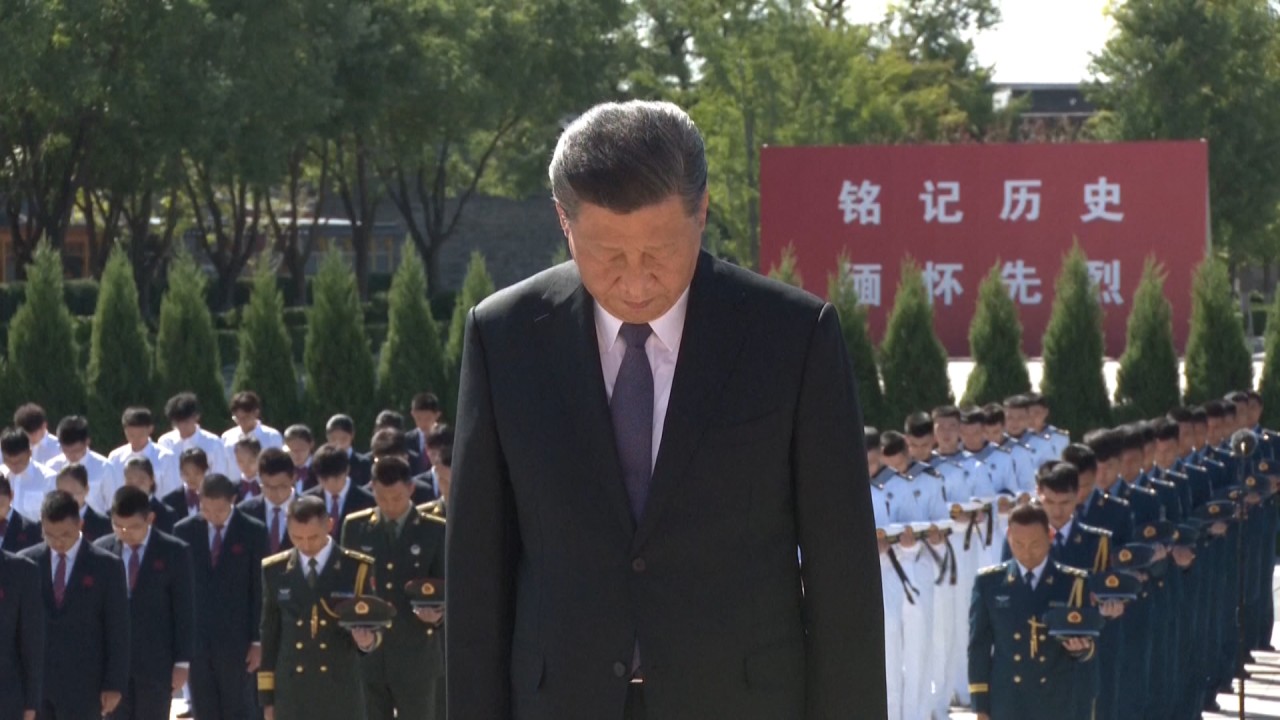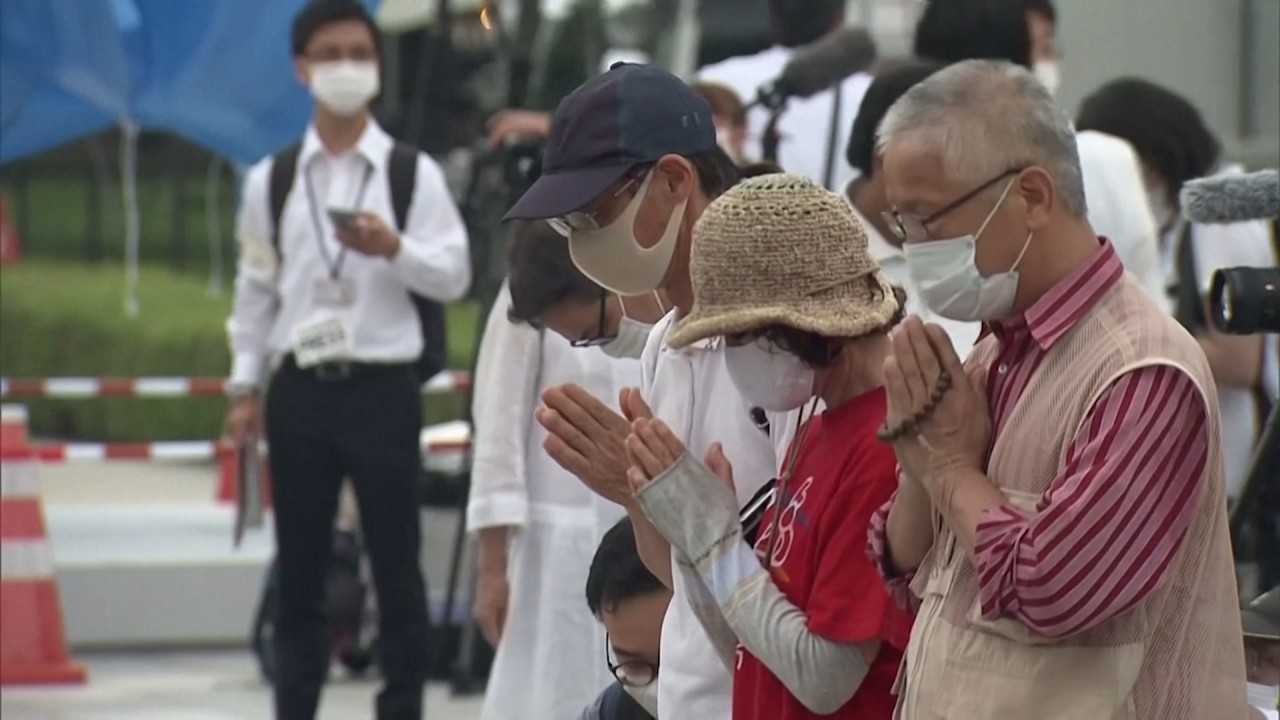
China’s Xi Jinping marks WWII victory, slams those who ‘vilify Communist Party’
- President attends ceremony on 75th anniversary of end of Sino-Japanese war before saying attempts to slur the party would be resisted by Chinese people
- He also emphasises cooperation with Russia in message to counterpart Vladimir Putin
Coming two weeks after the capital lifted a requirement to wear masks outdoors, the event was relatively subdued and was held without a public audience or a speech by Xi. Chinese leaders attend high-profile ceremonies to mark the occasion every five years.
Speaking on Thursday afternoon at a commemorative forum at the Great Hall of People, Xi said that Chinese people would carry forward the spirit of resisting foreign aggression and achieving national rejuvenation – which he said could be achieved only under the Communist Party’s leadership. Xi is the party’s general secretary.

03:23
Chinese President Xi Jinping commemorates 75th anniversary of end of World War II
“Chinese people would never agree to any people and forces … who try to impose their wills on China, change the course of China’s marching towards – and obstruct the hard work by Chinese people to create – a better life.”
Live footage of the ceremony showed officials at the event kept a certain distance from one another and did not wear masks.
Fighting at Marco Polo Bridge marked the start of the second world war in the Pacific, which ended with imperialist Japan’s surrender on September 2, 1945.

06:24
Explained: the history of China’s territorial disputes
China officially celebrates the end of the war on September 3, the date when the Japanese army in China formally surrendered to the Chinese government.
The United States entered the war in 1941 after Japan attacked a US naval base in Pearl Harbour, joining Allied forces including Britain and France.
On August 6 and 9, 1945, the US dropped two nuclear bombs over the Japanese cities of Hiroshima and Nagasaki. The bombings killed an estimated 110,000 to 210,000 people, mostly civilians.

02:51
Hiroshima bomb survivors fear legacy fading as Japan marks 75th anniversary of WWII atomic attack
On Thursday, Xi stressed China’s cooperation with Russia in a message sent to Russian President Vladimir Putin, the official Xinhua news agency reported.
“As the main battlefields in Asia and Europe, China and Russia have suffered huge sacrifices for the victory of the World Anti-Fascist War,” Xi said, using China’s name for the war.
The Chinese and Russian ambassadors to the United States co-authored a commentary calling on winning nations from the second world war to strengthen cooperation in the face of global challenges, including pandemics.
“We will stay committed to our comprehensive strategic partnership of coordination,” the ambassadors wrote in the article, published by US military news website Defense One. “We believe that the best way to commemorate the war is to avoid a repeat of the tragedy and join hands to open up a better future.”

